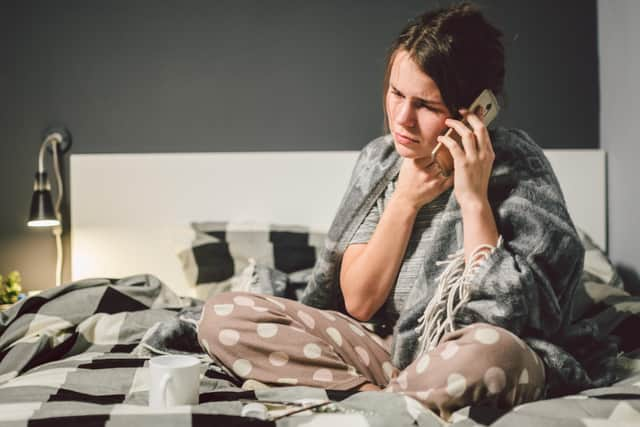Thousands of 111 calls 'abandoned' in Nottinghamshire over the festive period
and live on Freeview channel 276
From December 19, to January 1, 23,041 calls were made to 111 in Nottinghamshire.
Out of those calls 5,088, 22.1 per cent, were abandoned – an average of 363 calls abandoned each day during that period.
Advertisement
Advertisement
The phrase ‘abandoned calls’ means a patient puts the phone down before it was answered, they will normally try again later to enter the NHS111 queuing system.


A spokesman from DHU Healthcare, a not-for-profit healthcare company, said: “Throughout December, and over Christmas and the New Year, our NHS 111 teams at DHU Healthcare faced unprecedented numbers of calls – reaching a record 20,000 offered on December 27, an amount above the height of the Covid-19 pandemic.
“We strive to deliver compassionate, high standards of care, yet, despite having additional hours of staffing in place, it meant that at some points it was taking longer than it normally would to answer calls.
“To help all NHS services cope with on-going pressure and demand, DHU – and the hospitals and primary care services we work alongside – is encouraging people to think about the best place to go for help and support.
Advertisement
Advertisement
“For minor illness that could mean self-care, advice from a local pharmacist, or making a GP appointment if it can wait. For urgent medical advice, care and treatment, a walk-in or urgent treatment centre is also an option, or the 111.nhs.uk online service, which works through the same assessment without a phone wait and will still enable you to speak to a clinician if you need medical advice.
"Calling the service at times of peak demand, may mean waiting a little longer for a response, but we will get to you if you hold on.”
Health and Social Care Secretary Steve Barclay said: “Alongside record funding, including up to £14.1 billion for health and social care over the next two years, we are urgently implementing measures to improve flow through hospitals, creating the equivalent of 7,000 new beds and investing £500 million to speed up hospital discharge, freeing up beds and helping get ambulances swiftly back out on the road.”
